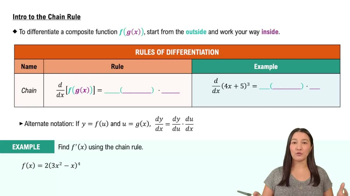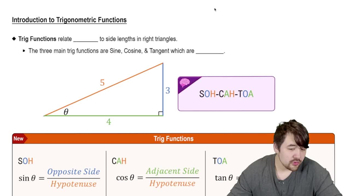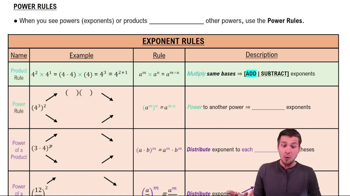Textbook Question
Finding Derivative Values
In Exercises 67–72, find the value of (f ∘ g)' at the given value of x.
f(u) = cot(πu/10), u = g(x) = 5√x, x = 1
 Verified step by step guidance
Verified step by step guidance Verified video answer for a similar problem:
Verified video answer for a similar problem:



 5:02m
5:02mMaster Intro to the Chain Rule with a bite sized video explanation from Patrick
Start learning